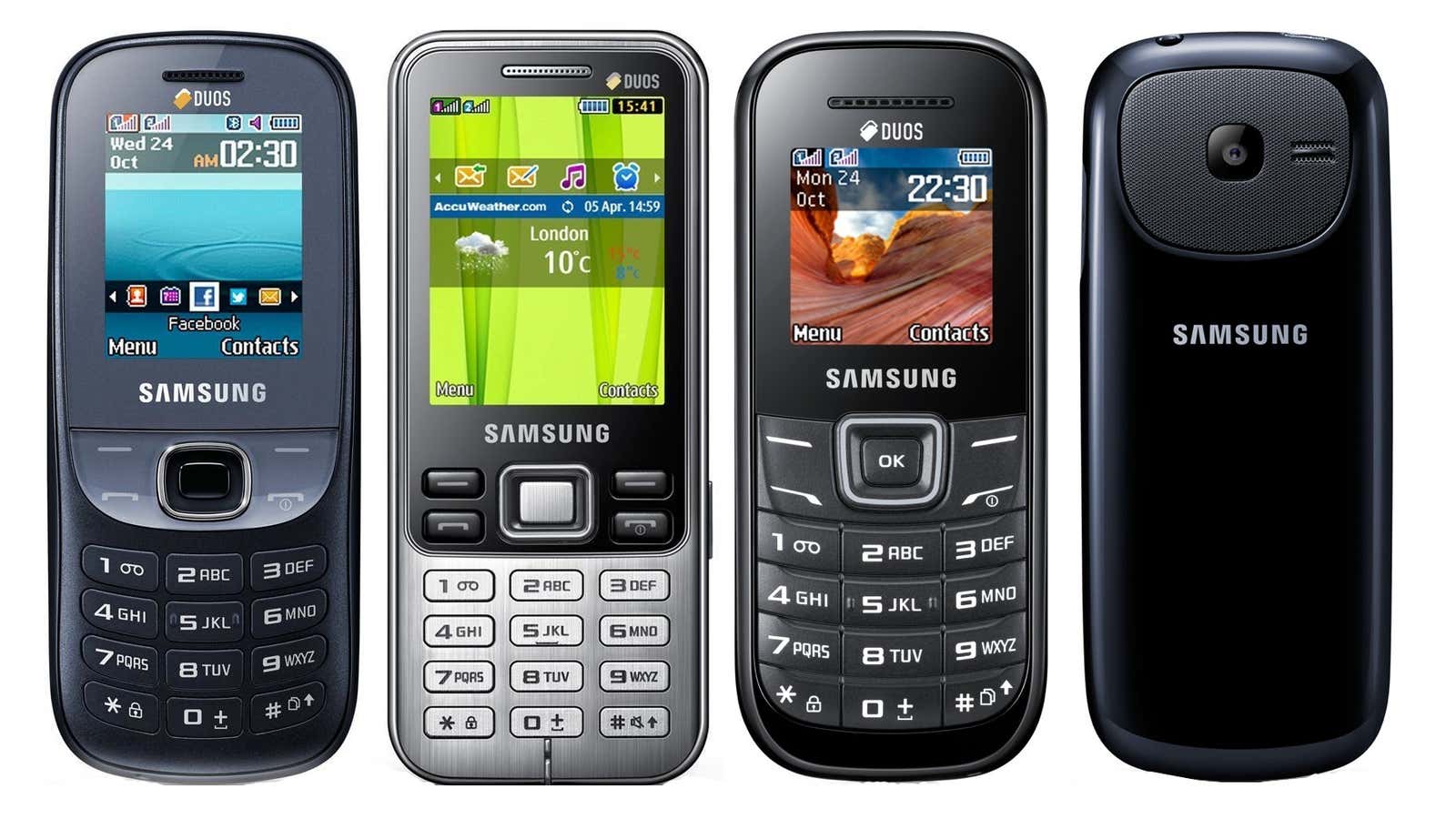Samsung and Apple may be duking it out for title of smartphone king, but in emerging markets Nokia still reigns supreme by selling huge number of mobile phones—the “dumb” kind. In India, at least, that dominance has just come to an end.
Yet another survey, this one by India telecom analysts at Voice&Data, has just determined that Samsung is now selling more mobile phones in India than Nokia. And that’s partly because Samsung is selling so many of the “feature” phones that are Nokia’s bread and butter. This does not bode well for Nokia, which relies on feature phones for most of its revenue.
Samsung had 31.5% of the market for smartphones in India in the first quarter of 2013, compared to Nokia’s 27.2%, according to Voice&Data. In the same quarter, 54.6 million feature phones were sold in India, as against only 6.1 million smartphones.
These feature phones look exactly like the phones that most consumers in rich countries abandoned years ago, only they can browse the web through Opera’s mini browser (a lightweight web browser for mobile phones), download music, record videos, and do many of the same things as smartphones.
The difference is that these phones cost as little as 1,500 rupees (about $24) and have features designed for India, like dust-proof keyboards, and slots for two different SIM cards, which make it easy for for people to switch between cellular carriers in India’s ultra-competitive mobile market.
Part of Samsung’s success in India is that the company is willing to offer phones at an astonishingly fine-grained spectrum of prices. In Samsung’s lineup, there’s always a slightly better phone available for a few more rupees. It’s part of Samsung’s strategy to get more people using its more profitable smartphones. That’s a larger battle that remains far from won.
